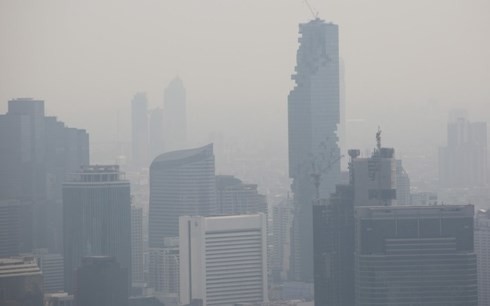
The Pollution Control Department reported the level of particulate matter with 2.5 micrometers (PM 2.5) ranged from 51 to 93 microgrammes per cubic meter of air in the past 24 hours, exceeding the safety standard of PM 2.5 is 50 microgrammes.
The air quality index of Bangkok on January 22 morning was recorded at 122, which is defined "unhealthy" for some sensitive groups. Readings below 50 are considered safe, while anything above 300 is considered hazardous.
Feeble winds and a lack of precipitation were blamed for the poor air quality in five of the six metro provinces including Bangkok, leading to new talk of cracking down on vehicle emissions.
The Bangkok Metropolitan Administration said it will purchase more green buses that use a cleaner bio-diesel blend. Police have set up 20 checkpoints to prevent large trucks from entering Bangkok in rush hours.
As the harmful particles spread to wider swaths of the metropolitan area and there are few signs of official measures offering relief, many academics called call the capital to be declared a pollution-control zone, so related agencies can enforce stricter legal measures to limit emissions and protect people's health.
























